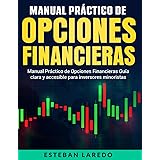Navigating the US Bitcoin Landscape: Best Exchanges for 2025
As the digital asset landscape evolves, securing the best platform to buy Bitcoin in the USA becomes paramount. With transaction fees ranging from 0.25% to nearly 4% and withdrawal limits, such as Cash App’s $2,000 maximum, the choice of exchange significantly impacts your experience and costs. This article complements the video above, offering a detailed guide on the optimal places to buy Bitcoin in the USA as we head into 2025, alongside platforms that might be best to avoid.
Why Jurisdiction and State Regulations Matter When Buying Bitcoin in the USA
When you seek to buy Bitcoin in the USA, your first consideration should always be jurisdiction. Opting for an international exchange, such as Ledger or Exodus, can introduce unnecessary complications. These platforms may struggle to process your payment methods, leading to frustrating funding issues. Furthermore, their support teams often operate across different time zones, making timely assistance difficult if any problems arise. It is generally advisable to exclude these from your options from the outset.
In addition, state-specific regulations play a crucial role. Many robust exchanges are not available in all US states. New York, for example, is well-known for its “BitLicense” requirement, a stringent regulatory framework that only a select few exchanges have successfully navigated to serve New York residents. Verifying an exchange’s availability in your specific state is therefore a critical step before proceeding.
Decoding US Bitcoin Exchanges: From Large Players to Bitcoin-Only Platforms
The journey to acquiring Bitcoin can lead through various types of platforms, each with distinct advantages and drawbacks. Understanding these categories helps you make an informed decision tailored to your needs.
The “Casino” Effect: Large Volume Crypto Exchanges
You have likely heard of the major players in the cryptocurrency space: Coinbase, Binance, and Kraken. These exchanges command large user bases due to their long-standing presence in the market. They typically offer a vast array of cryptocurrencies and tokens, appealing to those interested in more than just Bitcoin.
However, for individuals whose primary goal is to simply buy Bitcoin, these platforms can be overwhelming. The extensive selection of new cryptocurrencies, staking options, and leverage trading features can distract from the core objective. It can feel akin to navigating a casino floor just to reach the Bitcoin counter at the very back. Moreover, due to their immense volume of traders, personal support can be a challenge. If an issue arises with your Bitcoin purchase, you may find yourself as just another ticket number in a large support queue, rather than receiving focused assistance. These platforms are not singularly focused on Bitcoin, which can dilute the support experience for Bitcoin-specific inquiries.
Beginner-Friendly Apps with Limitations
For those new to the space or seeking extreme convenience, several popular apps you might already use offer an easy entry point. Platforms like PayPal, Robinhood, and Cash App have integrated Bitcoin buying capabilities directly into their user-friendly interfaces. Cash App, in particular, is often lauded as a great starting point due to its simplicity.
Nevertheless, these apps come with significant limitations. Cash App, for instance, imposes a $2,000 maximum daily withdrawal limit for Bitcoin. This restriction can be a major impediment for users looking to make larger Bitcoin purchases or frequent withdrawals. Critically, while these apps facilitate Bitcoin transactions, their core business model is not exclusively centered on Bitcoin, which can affect their feature set and dedicated support for Bitcoin users.
The Focus Factor: Bitcoin-Only Exchanges
A superior option for dedicated Bitcoin enthusiasts is the category of Bitcoin-only exchanges. These platforms are built with the sole purpose of facilitating Bitcoin transactions, often offering enhanced features and support for the asset.
- Strike: This platform is recognized for its straightforward approach to buying and selling Bitcoin. Strike supports both on-chain transactions and the Bitcoin Lightning Network, making it versatile for different user needs.
- River: Founded with Bitcoin at its core, River provides a comprehensive experience. They offer features like recurring buys, allowing you to dollar-cost average into your Bitcoin investment. River also provides interest on cash stored with them and boasts user-friendly web and mobile applications. Furthermore, they cater to business and private accounts, offering direct access to live individuals for significant purchases and withdrawals. While River is a custodial service, meaning they hold your Bitcoin until you withdraw it, they are transparent about their storage practices, displaying on-chain data and actively assisting users with withdrawals. For short-term custody, River stands out as a trustworthy option.
- Bitcoin Well: This is a non-custodial Bitcoin-only exchange, which means they do not hold your Bitcoin; you maintain full control of your keys. Bitcoin Well supports recurring buys and large purchases, and they provide a dedicated support team to assist users in making purchases directly to their cold storage solutions. They facilitate transactions on both the Bitcoin mainnet and the Lightning Network and offer competitive fees for a non-custodial service. A prerequisite for using Bitcoin Well is having your own Bitcoin wallet or storage solution ready for immediate withdrawal.
Advanced Security and Storage: Unchained’s Multi-Sig Solution
For users prioritizing advanced security, large purchases, and robust storage solutions, Unchained offers a unique proposition. Unchained is not just an exchange; it’s a comprehensive service that helps you buy and securely store your Bitcoin. They specialize in building multi-signature (multi-sig) vaults, which eliminate single points of failure in your Bitcoin storage.
If you were to store Bitcoin directly in a single wallet and lose access to it, your funds could be irrevocably lost. Unchained’s multi-sig vaults provide a critical backup and enable inheritance planning, ensuring your Bitcoin can be recovered even if you misplace your own storage solution. To purchase Bitcoin through Unchained, users must establish an Unchained account, which typically involves yearly fees varying by account type (personal, business, trust). Once your vault is set up, you can trade Bitcoin directly into it with no maximum purchase limits. Unchained also provides an American-based support team, offering assistance with transactions and banking challenges.
Understanding the Cost: A Deep Dive into Bitcoin Exchange Fees
A common initial concern for many is the cost associated with converting US dollars to Bitcoin. While fees are a factor, it is often more beneficial to prioritize a seamless, secure, and well-supported experience over chasing minimal fee savings. A slightly higher fee can be a small price to pay for reliable withdrawals, efficient transactions, and readily available support.
Let’s examine the typical fee structures across some of the prominent platforms:
Coinbase Fee Structure
Coinbase offers a free basic account, with an optional Coinbase One membership at $30 per month. Their deposit fees include a $10 charge for wire transfers, while ACH deposits are free. The spread, which is the difference between the buy and sell price, typically ranges from 0.5% to 0.6%. Transaction fees can vary significantly, from 1% to 3.99%, depending on the purchase amount and payment method. Withdrawal fees are generally passed on network fees. Payment methods are extensive, encompassing ACH, debit cards, wire transfers, PayPal, Apple Pay, and Google Pay. It’s important to note that Coinbase does not guarantee price pegs, as market conditions can lead to fluctuations.
Cash App Fee Structure
Cash App requires no account fees. Their spread varies from 0% to 1%, influenced by the transaction amount and time of day. Transaction fees typically range from 0.75% to 3% based on the purchase size. Withdrawal fees include network fees plus an additional charge of up to $3, depending on the amount sent. ACH is the primary payment method.
River Fee Structure
For personal accounts, River charges no annual account fees. They mention a small spread on their website, though the exact percentage is not publicly detailed. Their transaction fees range from 0.25% to 1%, depending on the purchase amount. Users are responsible for Bitcoin network withdrawal fees. Payment methods include wire transfers and ACH.
Bitcoin Well Fee Structure
Bitcoin Well operates with a $0 account fee. Their sole fee is a 1.2% spread applied to transactions. Payment methods are wire transfer, and ACH availability may vary.
Unchained Fee Structure
Unchained has an account fee starting at $250 annually, which can vary based on account type and the number of users involved in a multi-sig setup. They do not charge a spread on trades. Trading fees range from 1% to 1.5%, depending on the specific asset and amount purchased. Notably, there are no withdrawal fees when sending Bitcoin directly to your Unchained vault. However, payment methods are limited to wire transfers, with a $2,000 minimum transaction requirement.
This overview of fees highlights the varied cost implications across different platforms, emphasizing the importance of choosing a solution that aligns with your transaction frequency, volume, and overall investment strategy.
Custodial vs. Non-Custodial: Taking Control of Your Bitcoin
A fundamental concept when discussing where to buy Bitcoin in the USA is the distinction between custodial and non-custodial solutions. This difference directly impacts your ownership and control over your digital assets.
A **custodial** exchange, such as Coinbase, PayPal, Cash App, or River, acts as a custodian for your Bitcoin. This means that while you “own” the Bitcoin in your account, the exchange holds the private keys that control those funds. In essence, you trust the platform to secure your assets. If the exchange were to experience a security breach, regulatory issues, or even go out of business, your access to your Bitcoin could be compromised or lost. River, while custodial, offers transparency and active assistance in withdrawing Bitcoin, which mitigates some of these risks, but the fundamental custodial nature remains.
Conversely, a **non-custodial** solution gives you direct control over your Bitcoin by putting the private keys in your possession. Platforms like Bitcoin Well facilitate the purchase but expect you to immediately withdraw your Bitcoin to a wallet you control, often referred to as a Bitcoin wallet or cold storage. Unchained takes this a step further with its multi-sig vaults, where multiple keys are required to move funds, and you retain control over a majority of those keys. This approach eliminates the single point of failure associated with custodial services. With non-custodial solutions, the responsibility for securing your keys lies entirely with you, offering unparalleled control but also requiring diligent security practices.







